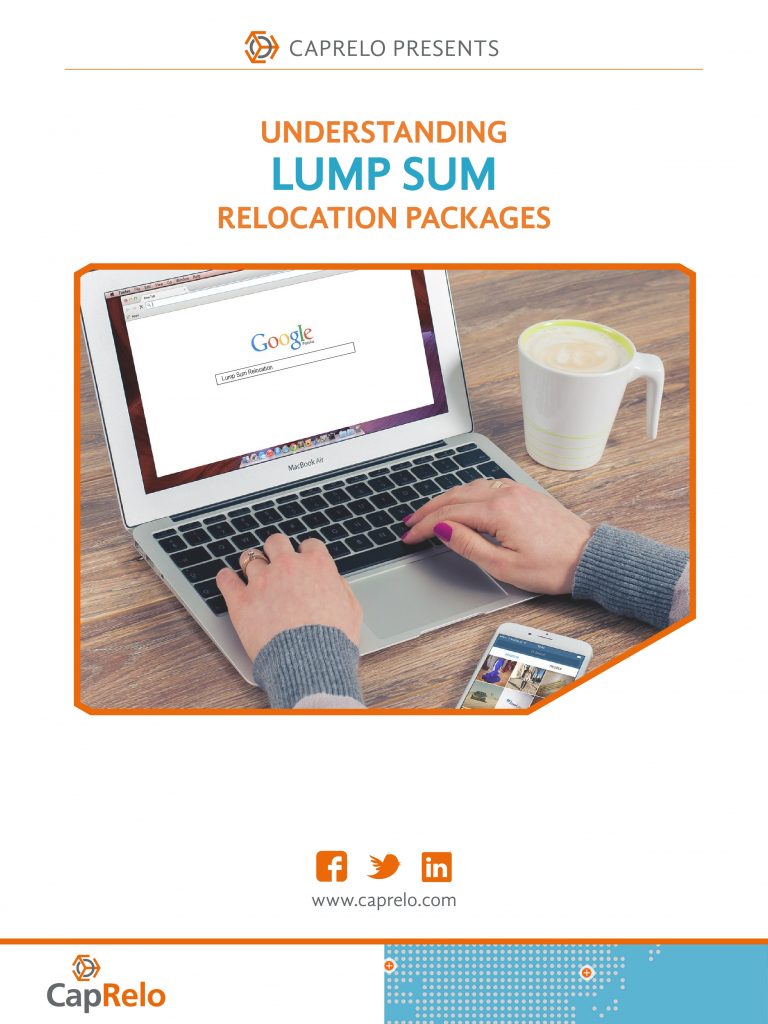According to Moveline.com, a relocation package can take the form of a reimbursement or direct bill. As the name implies, a lump sum is when the company gives you a set amount of money to spend however you want in order to get you, your family, and all your stuff, to the new city.
CapRelo created Understanding Lump Sum Relocation Packages to help explain the details of a lump sum program.

Packages may differ depending on company policy, industry, budget and other key factors. However there are some common features to keep in mind, according to CapRelo.
COMMON FEATURES OF AN AVERAGE RELOCATION PACKAGE:
- Full pack and/or unpack services. The employee’s household goods are packed by a moving company, saving the employee time and stress. After arriving at the new destination and home, moving company personnel unpack the household goods.
- Quality moving company service with reasonable insurance coverage. Some moving companies are known for quality moves, some are not. Since moving charges are usually based on total weight, insurance for damaged or lost goods should be equal to your goods’ value.
- Home sale or lease-breaking penalty assistance. Home sale help can come in a variety of ways, from company-sponsored reimbursement for money lost on quick home sales, professional marketing help to accelerate the timing of sales to the employer buying the home. Renters can expect employers to pay contractual penalties for early lease termination.
- House-hunting trip, minimum one. Standard relocation programs commonly include at least one, preferably two, company-paid house hunting trips of short duration to give the transferee and family opportunities to find new homes. House-hunting expenses incurred in looking for a new home: transportation, lodging, meals and in some cases, childcare so the kids can stay home (and out of the way) while the parents can house-hunt in peace. (According to the Illinois-based search firm Witt Kiefer, companies are increasingly encouraging families with younger children to leave them home, and reimbursing them for the expense, while looking for a new house.)
- Temporary housing. Standard relocations include at least 30 days of temporary housing for transferees.
- Transportation, including auto moving, to the final destination. Most relocation policies include reimbursement for transporting your transferee and his/her family to the new location. If the transferee can travel by auto, reimbursing for mileage expenses is common. Should the move require plane or train transportation, standard policies often include reimbursing the cost of moving the transferee’s vehicle(s).
- Miscellaneous expenses. As usual the “miscellaneous” category can encompass a lot of small costs. These can include driver’s license fees, pet registration and licenses, cleaning services at the new home, utility hook-ups and other move-related expenses. To keep this category cost controlled, identify or cap most eligible costs.
*The content of this article is property of CapRelo. AHI Corporate Housing does not claim ownership of the above text or images. The above information is being shared for better understanding of industry policies.
